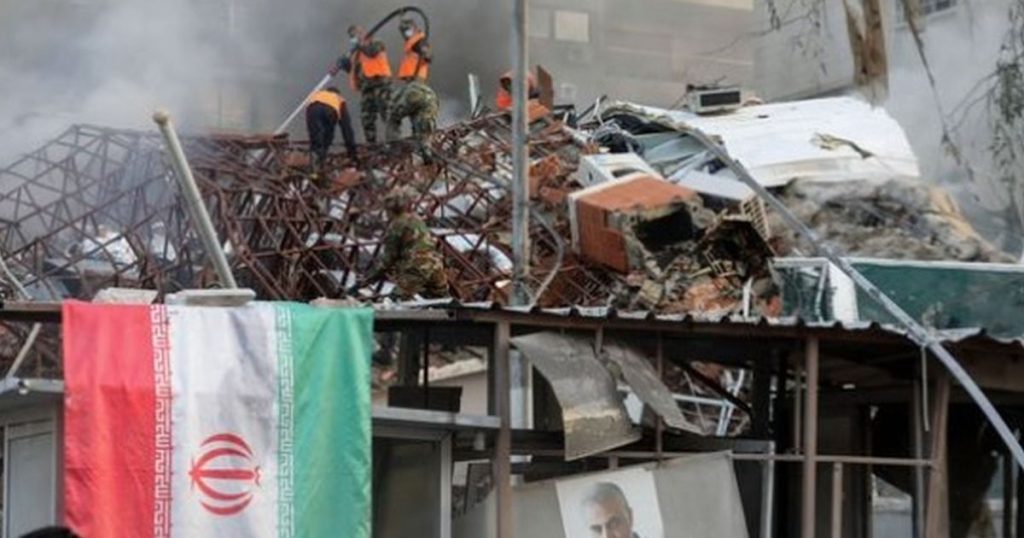Iran’s UN representative has claimed that the reported drone attack on Israel was an act of “legitimate defense”, following an airstrike earlier this week that destroyed Iran’s consulate in Syria. The drone attack was described as falling under UN jurisdiction and as a direct response to the consulate incident. The representative warned that if Israel were to retaliate, the response from Iran would be significantly more severe. A message addressed to US President Joe Biden also urged the USA to stay out of the conflict, emphasizing that it was a matter between Iran and Israel.
The situation escalated further when air raid sirens sounded in Jerusalem and explosions were heard in the skies, signaling the arrival of Iranian drones. Iran launched dozens of drones and ballistic missiles towards Israel, marking the first direct military assault on Israel from Iran. The international community expressed concern over the potential for a region-wide war, with France warning that Iran’s actions risked military escalation. Israel’s military reported over 100 drones fired, but stated that its air defenses were prepared. The US pledged to provide support to Israel, given its significant troop presence in the region.
The conflict between Iran and Israel has been fueled by ongoing hostilities, particularly during Israel’s war with Hamas militants in Gaza. The situation escalated following an airstrike in Syria that killed two Iranian generals inside an Iranian consular building, which Iran attributed to Israel. Tensions rose with daily exchanges of fire between Israel and Hezbollah along its northern border. Iranian-backed groups in Lebanon, Iraq, Syria, and Yemen also launched attacks towards Israel. The recent drone attack on Israel represented a significant escalation in the conflict.
The Iranian paramilitary Revolutionary Guard acknowledged launching drones and missiles towards Israel in a statement, targeting occupied territories and Zionist positions. The attack was framed as retaliation for the airstrike in Syria, positioning it as part of Iran’s ongoing conflict with Israel. The situation raised concerns about the potential for a wider confrontation in the region, escalating tensions between Iran and Israel. The international community, including the US, monitored the situation closely and provided support to Israel amid the escalating conflict.
Efforts to address the conflict and potential for further escalation have included statements from Iran’s UN representative, stressing their actions as defensive measures. The warning against Israel’s retaliation and the call for the US to stay out of the conflict reflect Iran’s efforts to manage the situation. The drone attack on Israel and the subsequent response from both sides have raised concerns about the destabilizing impact on the region. Efforts to mitigate the conflict and reduce the risk of further escalation are crucial in order to prevent a widening regional conflict.
The ongoing tensions between Iran and Israel, exacerbated by recent events in Syria and the drone attack, highlight the volatile nature of the Middle East region. The potential for a wider conflict involving multiple countries and groups underscores the need for diplomatic solutions to address underlying issues. The international response, including support for Israel and monitoring of the situation, reflects the urgency of preventing further escalation. Efforts to de-escalate the conflict, ensure stability in the region, and respect international norms are essential in managing the complex dynamics of the Iran-Israel conflict.















